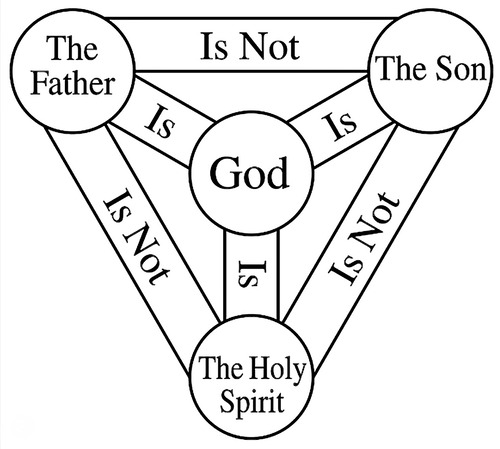Would Judas Have Been Forgiven If He Repented?
Could the man who betrayed Jesus with a kiss have found forgiveness if he turned back to God? This haunting question strikes at the heart of one the most infamous acts of treachery recorded in Scripture. Judas Iscariot, one of the 12 disciples, sold his Master for 30 pieces of silver (Matthew 26:14-16) and identified Him with a kiss in Gethsemane (Matthew 26:47-50). Yet when the weight of his deed crashed upon him, Judas was overwhelmed with remorse. He returned the money, and hanged himself in despair (Matthew 27:3-5).
Here lies a profound irony that should humble every believer: all of us are equally accomplices in Judas’ crime—our sins demanded Christ’s crucifixion just as surely—yet, we’ve found complete forgiveness through repentance and faith. Every believer shares in the guilt that nailed Jesus to the cross, yet receives mercy that Judas never experienced. This paradox highlights both the wonder of God’s grace and the mystery of His sovereign purposes.
From a Reformed perspective, while God’s grace is indeed sufficient for any repentant sinner, Judas’ lack of true repentance and his predetermined role in God’s sovereign plan reveal why forgiveness wasn’t realised in his case. Scripture affirms God’s purposes are unchanging, and even in humanity’s darkest betrayal, His redemptive plan unfolds with perfect precision.
GOD’S SOVEREIGNTY IN JUDAS’ BETRAYAL
Scripture makes it clear Judas’ betrayal wasn’t a cosmic accident but part of God’s eternal decree. Peter himself declared Judas’ fate was foretold: “Brothers, the Scripture had to be fulfilled, which the Holy Spirit spoke beforehand by the mouth of David concerning Judas” (Acts 1:16). This fulfillment traces back to Psalm 41:9, where David prophetically wrote of one who “ate my bread” yet “lifted his heel against me.”
The Reformed understanding of predestination, grounded in passages such as Romans 8:29-30 and Ephesians 1:4-5, teaches God’s sovereign will encompasses all events, including human sin. As the Westminster Confession states, “God from all eternity did… freely and unchangeably ordain whatsoever comes to pass; yet so as thereby neither is God the author of sin, nor is violence offered to the will of the creatures” (Chapter III). Judas’ betrayal was both his own moral choice and an essential component of God’s redemptive plan through Christ’s crucifixion.
This raises the inevitable question: if God decreed Judas’ betrayal, could he have repented? The answer lies in understanding God’s sovereignty and human responsibility aren’t contradictory but complementary. Romans 9:19-22 addresses this tension, describing how God raises up “vessels of wrath prepared for destruction” to display His power and make His mercy known to “vessels of mercy.” Judas’ role as betrayer was integral to the cross, and God’s decree ensured this role would be fulfilled. Yet, this would be accomplished without compromising human accountability.
THE NATURE OF TRUE REPENTANCE
True repentance is far more than feeling sorry for one’s actions—it’s a God-granted transformation of heart that turns from sin to faith in Christ. Scripture teaches us repentance is a divine gift: “God may perhaps grant them repentance leading to a knowledge of the truth” (2 Timothy 2:25), and “to the Gentiles also God has granted repentance that leads to life” (Acts 11:18).
When we examine Judas’ response in Matthew 27:3-5, we find he experienced metamelomai (Greek for remorse or regret) rather than metanoia (the transformative repentance that leads to salvation). His overwhelming guilt drove him to despair and suicide, not to the feet of Jesus in faith. This stands in stark contrast to Peter, who after his own betrayal through denial, experienced Spirit-enabled repentance that led to restoration (Luke 22:61-62, John 21:15-17).
The difference between Judas and Peter illustrates a crucial Reformed doctrine: true repentance is a gift given only to the elect. Jesus Himself declared, “No one can come to me unless the Father who sent me draws him” (John 6:44). Judas’ inability to repent aligns with his status as “the son of destruction” (John 17:12), indicating that his hardened heart was consistent with God’s eternal decree. While this may seem harsh to modern sensibilities, it underscores the radical nature of God’s grace—that any sinner receives the gift of repentance is pure mercy, not merit.
THE SUFFICIENCY OF GOD’S GRACE
We must be careful not to limit God’s grace in our theological reflections. Scripture abundantly declares God’s mercy is sufficient for any sinner who truly repents. Paul writes, “The saying is trustworthy and deserving of full acceptance, that Christ Jesus came into the world to save sinners, of whom I am the foremost” (1 Timothy 1:15-16). The promise remains: “Everyone who calls on the name of the Lord will be saved” (Romans 10:13).
If Judas had experienced genuine repentance—that transformative work of the Holy Spirit—God’s mercy would certainly have been sufficient to forgive even the betrayal of His Son. We see this in Paul’s own testimony, who called himself “the foremost” of sinners yet received abundant grace (1 Corinthians 15:9). The blood of Christ is powerful enough to cleanse any sin, no matter how heinous.
However, the Reformed position maintains God’s sovereign election determines who receives the gift of repentance (Ephesians 2:8-9). Judas’ unrepentant heart was not due to insufficient grace but to God’s decree that he would serve as the betrayer in the redemptive plan. This reflects not a limitation in God’s grace but the mystery of His sovereign purposes, which are “unsearchable” and “inscrutable” (Romans 11:33).
CONCLUSION: WOULD JUDAS HAVE BEEN FORGIVEN IF HE REPENTED?
Even in humanity’s darkest betrayal—our betrayal—God’s plan marched forward to accomplish the greatest good: the salvation of His people through the cross. Judas Iscariot’s story reveals the staggering depths of both human depravity and of God’s sovereignty. His betrayal was foreordained by God, his lack of true repentance was consistent with his role as a non-elect vessel of wrath, and his tragic end underscores genuine repentance is entirely a gift of God’s grace.
The supreme irony of Judas’ fate should pierce every believer’s heart: we who’re equally guilty of Christ’s death—whose sins demanded His crucifixion as much as Judas’ betrayal—have received the very forgiveness that eluded the betrayer. Every Christian is an accomplice in Judas’ crime, yet has experienced mercy beyond measure. “All we like sheep have gone astray” (Isaiah 53:6), and our rebellion sent Christ to the cross. Yet by God’s grace, what was denied to Judas has been freely given to us.
This sobering reality should drive us to examine our own hearts with urgency and gratitude. “Behold, now is the favourable time; behold, now is the day of salvation” (2 Corinthians 6:2). His grace is sufficient for any repentant sinner, and His arms are open to all who flee to Christ in faith—even accomplices in the greatest crime in history.
WOULD JUDAS HAVE BEEN FORGIVEN IF HE REPENTED? RELATED FAQs
Did Jesus try to warn or save Judas before the betrayal? Indeed, Jesus gave Judas multiple opportunities to reconsider. At the Last Supper, Jesus washed Judas’ feet (John 13:5), warned that one would betray Him (Matthew 26:21), and even privately identified Judas as the betrayer (John 13:26-27). Contemporary Reformed scholar RC Sproul argued these actions demonstrated Christ’s genuine love even for the reprobate, showing God’s common grace extends even to those not elected for salvation. However, these warnings ultimately served to harden Judas’ heart, fulfilling God’s sovereign purpose.
- How do Reformed scholars reconcile Judas being “chosen” as a disciple with his damnation? John Piper and other Reformed theologians distinguish between Jesus’ sovereign choice of Judas for apostolic service and God’s eternal election unto salvation. Jesus chose Judas knowing his ultimate destiny (John 6:70-71: “Did I not choose you, the twelve? Yet one of you is a devil”). This demonstrates God can use even reprobate individuals for His redemptive purposes. DA Carson notes Judas’ apostolic calling served the greater good of salvation history, while his personal fate remained sealed by God’s decree.
- What’s the difference between Judas’ remorse and godly sorrow that leads to repentance? Scholar Sinclair Ferguson explains Judas experienced mere metamelomai (regret over consequences) rather than metanoia (transformative repentance toward God). Paul describes this distinction in 2 Corinthians 7:10: “Godly grief produces a repentance that leads to salvation without regret, whereas worldly grief produces death.” Judas’ sorrow was self-focused and led to despair, while true repentance involves Spirit-wrought faith that looks to Christ for mercy.
Could Judas have been struggling with mental illness or demonic possession? While Scripture indicates Satan “entered” Judas (Luke 22:3, John 13:27), theologians like John MacArthur emphasise demonic influence doesn’t negate moral responsibility. Judas’ greed and gradual apostasy (John 12:6) preceded Satan’s more direct involvement, suggesting a hardened heart that became susceptible to demonic control. Mental illness, while a tragic reality, doesn’t excuse sin in Reformed theology—all of us are morally accountable before God regardless of psychological factors.
- Why didn’t Jesus pray for Judas like He did for Peter’s faith not to fail? Jesus explicitly stated He prayed for Peter: “I have prayed for you that your faith may not fail” (Luke 22:32), but made no such intercession for Judas. Tom Schreiner suggests this reflects Jesus’ perfect knowledge of the Father’s elective purposes—He interceded for those the Father had given Him (John 17:9: “I am not praying for the world but for those whom you have given me”). This demonstrates the particularity of Christ’s high priestly work, interceding specifically for the elect.
- How do contemporary scholars view the “Judas Gospel” and other apocryphal accounts? Reformed scholars universally reject the Gnostic “Gospel of Judas” and similar apocryphal works as historically unreliable and theologically heretical. Albert Mohler and others note these texts, written centuries after the apostolic period, contradict canonical Scripture and promote Gnostic dualism rather than biblical Christianity. Michael Kruger emphasises these documents reflect later theological speculation rather than authentic apostolic witness, and their portrayal of Judas as a heroic figure directly contradicts Jesus’ own words about the betrayer.
What practical lessons should Christians draw from Judas’ fate regarding assurance of salvation? Theologian Jerry Bridges taught Judas’ apostasy should drive believers to examine themselves (2 Corinthians 13:5) while finding assurance in God’s preserving grace rather than their own perseverance. The Westminster Confession affirms true believers cannot totally or finally fall away, unlike Judas who was never genuinely converted. Joel Beeke emphasises Christians should be sobered by Judas’ example while resting confidently in Christ’s promise: “My sheep hear my voice… and no one will snatch them out of my hand” (John 10:27-28).
WOULD JUDAS HAVE BEEN FORGIVEN IF HE REPENTED? OUR RELATED POSTS?
- How Many Times Did the Rooster Crow at Peter’s Denial?
- From Rock to Stumbling Block: Why Jesus Called Peter Satan
- Couldn’t God Just Forgive Sin Without Sending People to Hell?
- Healing from Abortion Guilt: Christ Offers Boundless Forgiveness
Editor’s Pick

Was Jesus Abandoned by the Father on the Cross?
WHY WE ANSWER IN THE NEGATIVE “My God, my God, why have you forsaken me?” These words from the cross [...]

Why Do Some Respond to God’s Call While Others Don’t?
THE REFORMED VIEW ON OUTWARD AND INWARD CALLS EXPLAINED Picture this: Two neighbours attend the same church service. They hear [...]

Does Ocean Salt Content Prove a Young Earth?
A COMPELLING LOOK AT MARINE CHEMISTRY AND EARTH’S TIMELINE The Salt Question That Challenges Deep Time: If Earth’s oceans have [...]
Noah’s Flood: Where Did All the Water Come From? And Go?
The question hits every Bible-believing Christian at some point: “If Noah’s flood covered the whole earth, where did all that [...]

No Marriage in Heaven? What Does Mark 12:25 Mean?
“Will I see my spouse in heaven? Will we still be married?” These questions pierce the heart of every Christian [...]

The Terror of Meeting God: What Isaiah 6 Reveals About Divine Holiness
WHEN ‘WOE IS ME’ IS THE ONLY PROPER RESPONSE TO A GLIMPSE OF GOD Picture this: You’re a prophet of [...]

Is the Holy Spirit Present in Unbelievers? The Biblical Answer
Can someone who doesn’t believe in Jesus Christ have the Holy Spirit living inside them? This question strikes at the [...]

The Gap Theory Exposed: Why Embrace a Young Earth?
The Gap Theory proposes there’s a vast time gap—millions or billions of years—between Genesis 1:1 (“In the beginning God created [...]

Rethinking Sickle Cell Anaemia: A Case for Intelligent Design
Sickle cell anaemia presents what many consider evolution’s strongest card—a genetic condition that causes suffering yet provides protection against malaria. [...]

‘Bad’ Design: Flaw in Nature Or Flaw in Our Perspective?
When the Eiffel Tower was first proposed, critics called it a monstrous eyesore that would ruin Paris forever. Today, it’s [...]






